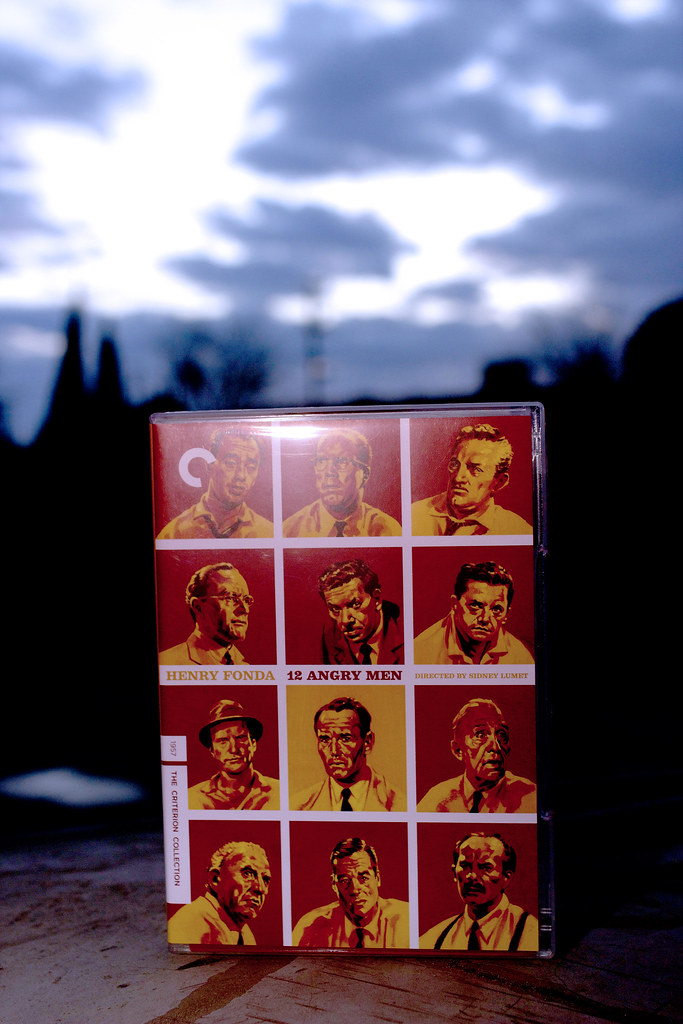
“12 Angry Men”, the classic Sidney Lumet film that featured one of the most riveting, thought-provoking courtroom dramas in cinema history.
But before the 1957 film was made, writer Reginald Rose would create a teleplay of “12 Angry Men” for Westinghouse Studio One, a CBS live production that aired back in Sept. 20, 1954.
This was during a time when people were buying television to move away from radio programming to teleplays featured on both CBS and NBC and the response that the teleplay received was tremendous and would go on to win three Emmy Awards for Rose, director Franklin Schaffner and Robert Cummings for “Best Actor”. Suffice to say, the teleplay’s success would lead to a play adaptation in 1955.
With the success of the teleplay, actor Henry Fonda wanted to bring “12 Angry Men” to the big screen and working with Reginald Rose, the two decided to go for it. The only challenge was to keep things within the budget of $350,000 and so that meant finding a director that was talented but not expensive. And so, they went with a television director named Sidney Lumet (who would go on to direct “Network”, “Dog Day Afternoon”, “Before the Devil Knows Your Dead”), who never directed a film before, but had the experience to make this teleplay work on film.
With the film primarily using one set, the film dependent on the actors. And while Henry Fonda (“The Grapes of Wrath”, “Once Upon a Time in the West”, “On Golden Pond”) was the lead actor and the best known actor of the film, “12 Angry Men” would also star Joseph Sweeney and George Voskovec (both who were featured in the Westinghouse Studio One teleplay) and star Ed Begley (“The Unsinkable Molly Brown”, “Hang ‘Em High”), the film debut of Jack Klugman (“The Odd Couple”, “Quincy”, “Days of Wine and Roses”), Jack Warden (“Shampoo”, “Heaven Can Wait”), Martin Balsam (“Psycho”, “Breakfast at Tiffany’s”, “Tora! Tora! Tora!”), John Fiedler (“The Odd Couple”), Lee J. Cobb (“The Exorcist”, “On the Waterfront”, “The Virginian”), E.G. Marshall (“The Defenders”), Edward Binns (“North by Northwest”, “Patton”) and Robert Webber (“The Dirty Dozen”, “10”).
The film did very well in the box office and would be nominated for three Academy Awards (“Best Director”, “Best Picture” and “Best Writing of Adapted Screenplay”) and was selected for preservation in the United States National Film Registry by the Library of Congress as being “culturally, historically, or aesthetically significant” in 2007.

Riveting and thought-provoking, “12 Angry Men” is a film that captivates viewers from beginning to end. From its powerful ensemble performances, wonderful screenwriting and its creative cinematography, there is no doubt in my mind why this film continues to live on, discussed and analyzed.
My first introduction to “12 Angry Men” was in psychology class when I was a teenager and over the years, I have seen this film on video, on cable television and now watching the Criterion Collection release of this important film, it’s a film that continues to succeed in many levels and has its relevance today.
Clever writing that goes to show how many people are quick to judge. Even today, with many high profile cases, many wonder how people are able to acquit an individual on charges and I always think about this film. What we are presented in media is one thing, but the burden of sending one to prison for life or for a death penalty, it requires a group of jurors to be in unison and not have “reasonable doubt”.
The 1957 film does a magnificent job in showing viewers how people are quick to judge but even goes further than the teleplay in giving us the character’s background but also to bring in more character development in order to show the viewers why the jurors think they way they do.
For example, juror #7 (played by Jack Warden) is a man who is more bothered by he heat and humidity and worry about not missing a baseball game than the actual case, so he goes with the flow of “guilty” and is seen as a man with no moral scruples. While juror #10 (played by Ed Begly) is a man who will automatically vote “guilty” because of the young man’s upbringing. He grew up in the slum, thus he is automatically a deviant. And then there is juror #3 (played by Lee J. Cobb), a man who worked hard all his life but the viewer is tipped off that there was some sort of disagreement that led to him and his son not talking, and thus this case of a son murdering his father tends to have some influence on his anger to push for “guilty”.
“12 Angry Men” is a title that explains the emotions that come out during the deliberation. Juror #1 (played by Martin Balsam) ends up being the man in charge of getting everyone to vote. And we see his temper being tested when people speak out of turn. Juror #5 (played by Jack Klugman) starts of quietly until he hears juror #10 continue his ranting of how people from the slum are bad people and then finally speaking out and telling everyone that he is from the slum. When a juror #3 starts yelling at the older juror #9, juror #6 is offended how anyone can disrespect and elder and comes to the point where he wants to defend the older man by fighting juror #3.
What writer Reginald Rose was effective in his screenplay was to develop 12 characters and making the viewer interested in them. Intelligently written, wonderful performances by its talent, then you have the cinematography of Boris Kaufman (“On the Waterfront”, “Splendor in the Grass”, “The Pawnbroker”) who is able to use a variety of shots in the single room to make us feel the uncomfortable humid heat the the jurors are facing.
From the shots of the broken fan, the beads of sweat that are flowing through the heads of the individuals, the sweat that is showing on their necks and underarms. But also the efficacy of showing us emotion through facial characterizations. Scenes showing characters looking directly at the camera, scenes showing us anger and despair. And to imagine that all this is happening in one room.
It’s truly amazing how captivating this film is. A film that is low-budget, required no magnificent costume design, no major set design. It’s a film that relies on the actor’s performance and a screenplay that gives the actor their moment to grow their character.
Masterfully created, Sidney Lumet’s film adaptation of Reginald Rose’s wonderful teleplay is a true classic. A film that relies on its intelligent screenplay, powerful performances and creative cinematography, “12 Angry Men” will continue to be a beloved courtroom drama that will have its relevance in today’s society as it did in the past, but also in the future.
